
- Shandong Loyal Industrial Co.,Ltd.
- SHORT-CUT PASTA PRODUCTION LINE LONG-CUT PASTA PRODUCTION LINE INSTANT PASTA PRODUCTION LINE
Home> Application> The Ultimate Guide To Automatic Pasta Manufacturer for Sale with High Efficiency and Energy Savings In 2024

The Ultimate Guide To Automatic Pasta Manufacturer for Sale with High Efficiency and Energy Savings In 2024
The Ultimate Guide To Automatic Pasta Manufacturer for Sale with High Efficiency and Energy Savings In 2024
In the ever-evolving landscape of pasta processing equipment, the opportunity to enhance operations through a Full Automatic Pasta Manufacturer for Sale has become a focal point for industry players. This introduction aims to elucidate how this prospect can elevate operations, emphasizing the pivotal factors of high efficiency and energy savings.Shandong Loyal Industrial Co., Ltd. has incorporated advanced technologies from BID and PDominioni in the production of its macaroni.

Unveiling the Full Automatic Pasta Manufacturer
Full automation in pasta manufacturing represents a paradigm shift, where every stage of the production process, from mixing to packaging, is seamlessly automated. This section delves into the intricate workings of a fully automated system, emphasizing its role in achieving unparalleled efficiency and energy savings.
The offered pasta manufacturing equipment boasts a myriad of features that set it apart. Precision engineering, cutting-edge technologies, and adaptability are among the key aspects highlighted. These features collectively contribute to the efficiency and energy-saving capabilities of the machinery.
Benefits of Full Automatic Pasta Manufacturing
Embracing a Full Automatic Pasta Manufacturer for Sale translates to substantial efficiency gains in pasta production. The precision of automated processes, coupled with real-time monitoring, results in increased production output and streamlined operations, meeting the demands of a dynamic market.
The adoption of full automation aligns seamlessly with energy-saving practices in pasta manufacturing. This section underscores the environmentally conscious aspects of the machinery, focusing on reduced energy consumption, sustainable production practices, and the overall eco-friendly footprint.
Navigating the Purchase Process
Prospective buyers are encouraged to explore the diverse options available in the market and consider customization to meet specific operational needs. This section serves as a guide to assist in making informed decisions when contemplating the acquisition of a Full Automatic Pasta Manufacturer for Sale.
Practical insights into the financial considerations associated with purchasing automated pasta manufacturing equipment are provided here. The discussion encompasses the initial investment, operational cost savings, and the anticipated return on investment, empowering buyers to make well-informed decisions.

Case Studies: Success Stories with Full Automatic Pasta Manufacturing
Profiles of pasta manufacturers, including Colavita, Garofalo, Whole Foods 365 Everyday Value, Jovial, and DeLallo, showcase their experiences in successfully embracing full automation. These case studies offer valuable insights into the transformative impact on their operations.
A detailed analysis of performance metrics and operational improvements observed by pasta manufacturers after implementing a fully automated system. Quantifiable data underscores the positive impact on efficiency, productivity, and overall operational excellence.
Conclusion
In summary, the exploration of "Elevate Your Operations: Full Automatic Pasta Manufacturer for Sale with High Efficiency and Energy Savings" provides a holistic view of the transformative potential of full automation in pasta manufacturing. From efficiency gains to energy savings and the success stories of industry leaders, the article underscores the profound impact on operations.
Investing in a pasta manufacturer for sale that embraces full automation is not just a transaction; it's a strategic move to future-proof operations in a competitive market. As the industry advances, this innovative approach positions pasta manufacturers for sustained success, combining operational excellence with environmental responsibility.

FAQs: Frequently Asked Questions about Pasta Manufacturer for Sale
Curious minds often seek clarity on the concept of a pasta manufacturer for sale through full automation. Here, we address common queries to provide a comprehensive understanding of this innovative approach and its implications for the industry.
1.What differentiates a *ull Automatic Pasta Manufacturer for Sale*from traditional pasta manufacturing equipment?
The key differentiator lies in the level of automation. A full automatic pasta manufacturer seamlessly integrates cutting-edge technologies throughout the production process, offering precision, speed, and scalability that traditional equipment may lack.
2.How can a fully automated pasta manufacturing system enhance operational efficiency?
Full automation optimizes every stage of pasta production, from mixing to packaging, ensuring consistent and precise processes. This leads to increased production output, reduced operational bottlenecks, and overall enhanced efficiency.
3.Are there customization options available for the offered pasta manufacturing equipment?
Absolutely. Manufacturers recognize the diverse needs of the industry, and many offer customization options for their full automatic pasta manufacturing equipment. This allows businesses to tailor the machinery to their specific requirements and production processes.
4.What financial considerations should be taken into account when investing in a pasta manufacturer for sale?
The initial investment in a fully automated pasta manufacturing system is a crucial consideration. However, it's essential to weigh this against the long-term operational cost savings, increased productivity, and the overall return on investment. Many manufacturers provide detailed financial analyses to assist in the decision-making process.
5.How can pasta manufacturers ensure a smooth transition to full automation?
Successful transitions often involve comprehensive training programs for the workforce, meticulous planning, and a phased implementation approach. Manufacturers and industry experts emphasize the importance of strategic planning to mitigate challenges and maximize the benefits of full automation.
Contact Us

- Shandong Loyal Industrial Co.,Ltd.
- Telephone+86 13176674591
- Email[email protected]
- WhatsApp+86 13176674591
- WeChat13176674591
- AddressC623, Jiahui Global Plaza, No. 548, Beiyuan Street, Tianqiao District, Jinan City, Shandong Province
- Factory AddressADD -300m North of Zhangxia Industrial Park, Binhe Road, Zhangxia Town, Changqing District, Jinan
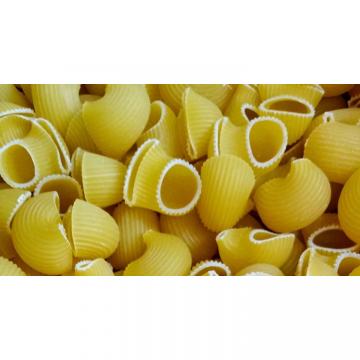

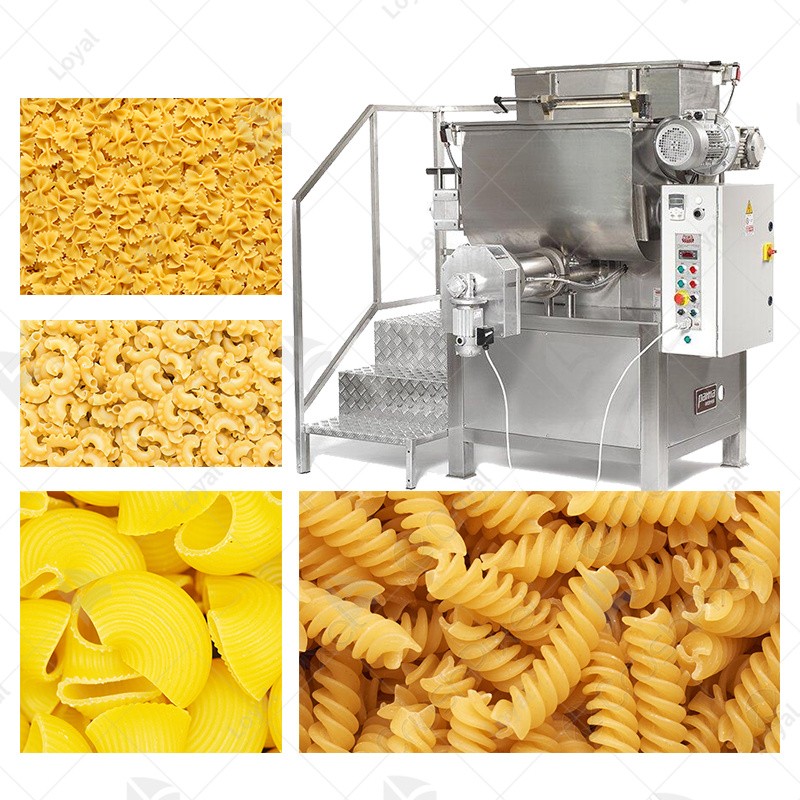

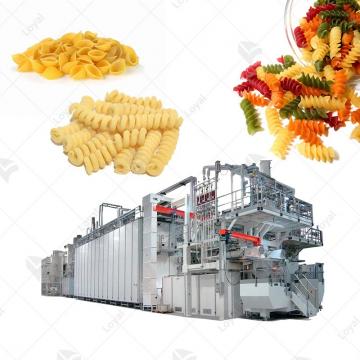
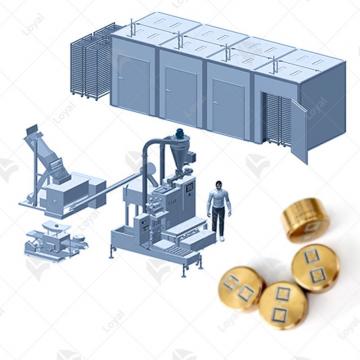 Spaghetti Pasta Production Line
Spaghetti Pasta Production Line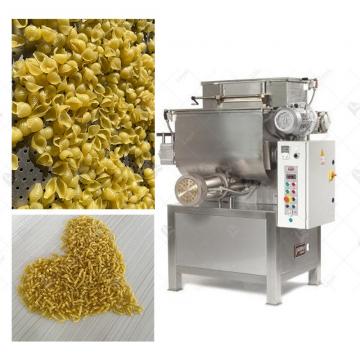 PRECOOKED PASTA PRODUCTION LINE
PRECOOKED PASTA PRODUCTION LINE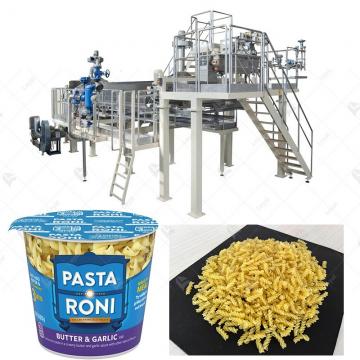 Instant Pasta Production Line
Instant Pasta Production Line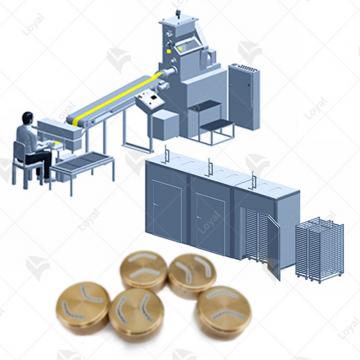 Dry Pasta Production Line
Dry Pasta Production Line